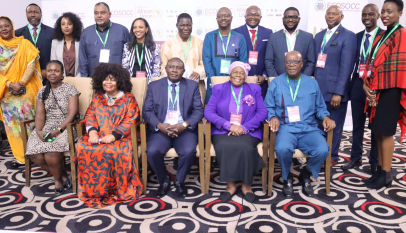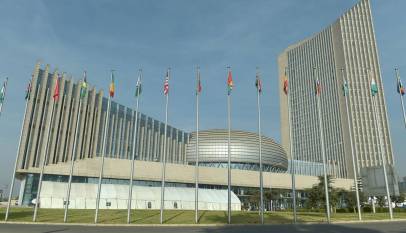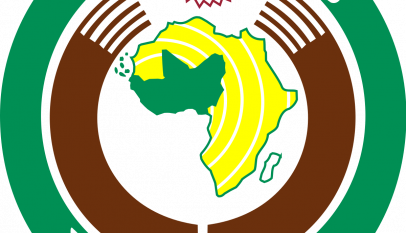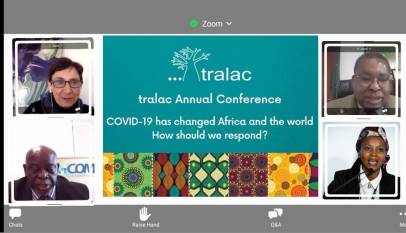2019 Africa Industrialization Week kicks-off in Addis Ababa; auto value chain takes centre stage
The second annual Africa Industrialization Week (AIW 2019), under the theme: “Positioning African Industry to Supply the African Continental Free Trade Area (AfCFTA) Market,” has Monday kicked-off in Addis Ababa, Ethiopia. This year’s commemoration is coming months after the launch of the operational phase of the African Continental Free Trade Area (AfCFTA) Agreement, laying the foundation for a continental market space of US$3.4 trillion and a consumer base of 1.27 billion.
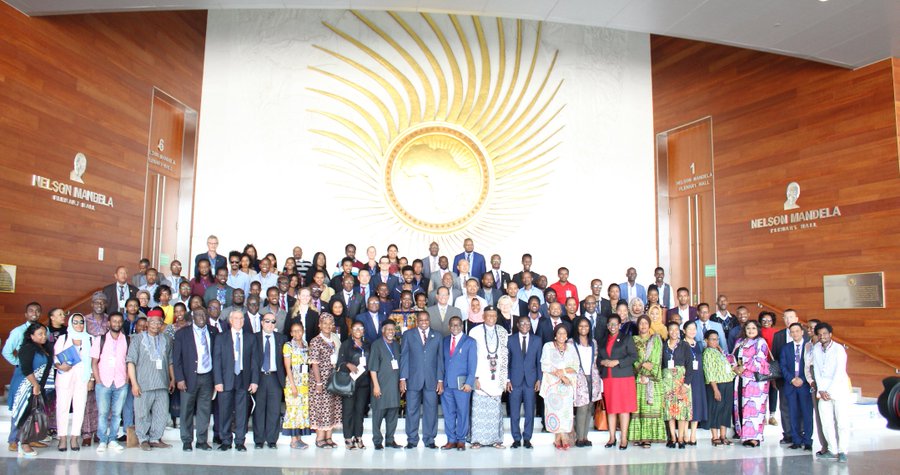
While declaring AIW 2019 open, African Union Commission’s Commissioner of Trade and Industry His Excellency Albert Muchanga said if only deliberate and strategic efforts would be made to leverage Africa’s diverse and rich natural resources, there wouldn’t be excuse for Africa’s current weak manufacturing capacity, adding that the AfCFTA presents an invaluable opportunity to reposition Africa’s industrial production capacity.
“Let me share a few statistics on the market dynamics to elaborate my ideas on why development of an Africa Auto Value Chain can have far reaching implications for the delivery of economic structural transformation in the continent. According to a Report by Delloite Touche (2018), the rise of income levels in many African countries and the emergence of a middle class, makes the continent the final frontier for the global automotive industry,” said Ambassador Muchanga during a panel session titled: Africa Automotive Value Chain: Motoring Africa.
He recalled how imports of vehicles into Africa had from 2003 onwards grew rapidly, thanks to GDP per capita growth and a growing middle class on the continent, adding that in 2014 alone, the continent’s imports for automotive products (worth US$48 billion) were four times more than the value of automative products Africa exported (US$11 billion) in the same year.
“Key sources of used vehicles are the United States (US), Europe and Japan. For instance, according to a survey conducted by Delloite and Touche, in Ethiopia, Kenya, and Nigeria in 2017, at least 8 out of 10 imported vehicles are used vehicles, with the Middle East serving as a notable transit route for vehicles into East Africa. The continent’s automotive market remains quite small, with 42.5 million vehicles being registered as in use during 2014, despite a huge population in excess of 1 billion…During 2015, approximately 1.55 million new vehicles were sold in Africa, with 80% of the sales dominated by South Africa, Egypt, Algeria and Morocco, that is countries that have well established and automotive industries.
“Sales growth projections based on current consumption levels for Africa’s passenger vehicles have been placed at 10million units, between now and the year 2030. Though sales of new vehicles for both passenger and commercial vehicles increased by 3.6% during the period 2005 to 2015, this was glaringly lower than other emerging regions such as Asia and the Middle East (8.9%), and Latin America (4.2%),” stated Commissioner Muchanga.
He decried the fact that Africa’s auto production only accounts for 1% of global output in 2018 – in comparison to South America’s 3%; North America’s 20%; Europe 23%; and Asia’s 50% adding that Tunisia, Nigeria, Algeria, Botswana, Egypt, Morocco, and South Africa constitute Africa’s auto production value chain, with South Africa dominating automotive trade on the continent – accounting for three-quarters of Africa’s automotive exports.
“The Sub-Saharan African market presents a lot of potential for the automobile industry, given an expanding market, and automobile trade deficit of US$16.3 billion, thus presenting opportunities for the development of a viable automotive value chain in the continent…Thus, optimal development of the auto – value chain will be an entry point for the development of intra-Africa industry and trade links, a stimulus for industrialisation and shared and balanced regional growth in Africa – a major aspiration of Agenda 2063. You will all agree with me that the benefits of investing in the Auto Value Chain at the continental level, wields the greatest possibilities for Africa’s industrialisation,” averred Ambassador Muchanga.
While speaking at the opening ceremony of AIW 2019, Mansur Ahmed, interim president of the Pan African Manufacturers Association (PAMA) said the coming into force of the CFTA had been received by Africans with both high expectations and trepidation adding that as the continent readies to implement the CFTA, it must simultaneously create the market as well as produce the goods to be traded in the market.
“We must recognise the fact that trade happens when there’s a market and our governments have created a market of 1.2 billion of people; the second requirement for trade to take place is having the goods to trade in. So, if CFTA must succeed, we must create a greater capacity for African industries to grow; be able to manufacture the goods we will trade in not only within Africa but also with the non-African market. African manufacturers and industrialists must begin to work together more closely so as to create an environment for Africans to trade with each other; I believe this is the idea of the Africa Industrialisation Week,” said Ahmed.
Banji Oyelaran-Oyeyinka, senior special advisor to the president of the African Development Bank (AfDB) on industrialization, while speaking about the AfDB’s contribution to Africa’s industrialisation drive at the opening ceremony, said the continent’s industrialisation was one of the key pillars of the bank’s High 5 Agenda, namely: Light up and Power Africa; Feed Africa; Industrialize Africa; Integrate Africa; and Improve the Quality of Life for the People of Africa.
Oyelaran-Oyeyinka said one of the High 5s – the Feed Africa: A Strategy for Agricultural Transformation in Africa 2016-2025 – was aimed at exploring “Africa’s comparative advantage in agriculture to industrialise agricultural production on the continent. The strategy will be promoting Special Agro-Industrial Processing Zones (SAPZs) which are currently being rolled out across a number of African countries; AfDB is supporting the countries with financial and technical resources. The ultimate goal of the special agro-industrial zones is to turn Africa’s rural landscape into economic zones of prosperity and lay the foundation of Africa’s agro-industrial development so as to lift the masses of Africa out of poverty.”
He decried the fact that Africa was currently importing food worth 35 billion US dollars, annually, which he described as ‘not sustainable’ hence the need to boost the continent’s food production capacity by mechanising and modernising agricultural production.
“In some [African] countries, 80% of those working in agriculture are doing so at subsistence level, one of the strategies of these agro-industrial zones is to turn small-scale farmers into modern farmers and raise their production capacity. Looking at rice farming for example, in most African countries, the yield per hectare is 3 tonnes while Asian countries are getting close to 12 tonnes per hectare. We need to stop importing food! By 2030, African agribusiness will be worth 1 trillion dollars; this is a huge market, if we don’t move forcefully, others will take over the market,” Oyelaran-Oyeyinka warned.
AIW 2019 is being organized by the AU Commission in collaboration with the United Nations Economic Commission for Africa (UNECA); the United Nations Industrial Development Organization (UNIDO); the United Nations Conference on Trade and Development (UNCTAD) as well as the Geneva-based International Trade Centre, (ITC). Others are the European Union; Ethiopian Ministry of Trade and Industry (MoTI); the Africa Korea Foundation; the Africa Free Zones Organisation (AFZO) as well as the German development agency (GIZ).
Amongst others, the key objectives of AIW 2019 are: mobilizing both African and leaders from the rest of the world, including international development organizations to advocate for the accelerated, sustainable and inclusive industrialization of Africa; promotion of startups, small and medium sized enterprises/industries (SMEIs) cum established middle and high-cap enterprises to strengthen the continent’s capacity to integrate into the global production and trading system.




